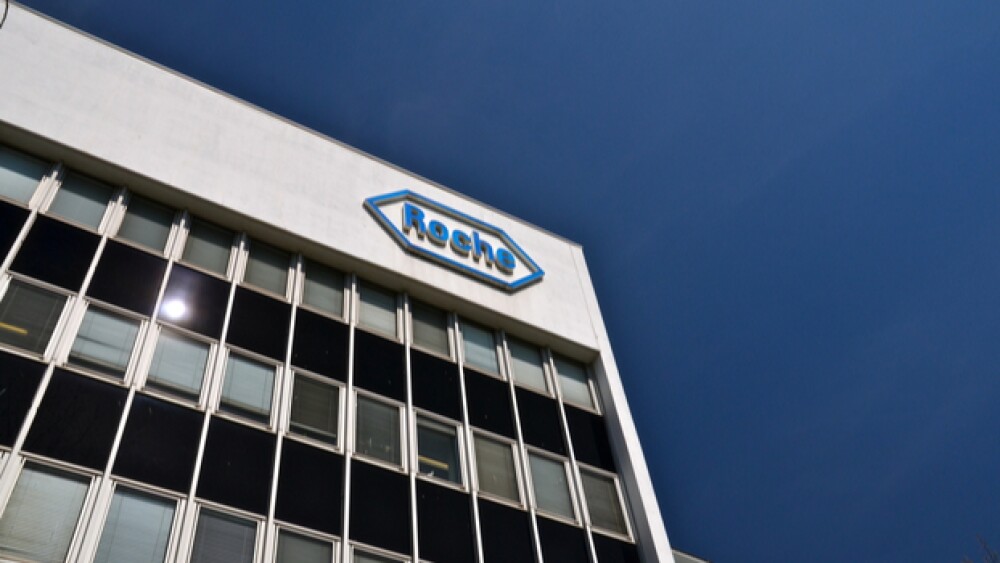The versatile drug currently treats locally advanced or metastatic urothelial carcinoma, metastatic non-small cell lung cancer, metastatic triple-negative breast cancer, and extensive-stage small cell lung cancer.
lucarista / Shutterstock
Roche’s Tecentriq, generically known as Atezolizumab, is a monoclonal antibody which influence in the medical community has steadily risen for the past four years. The versatile drug currently treats locally advanced or metastatic urothelial carcinoma, metastatic non-small cell lung cancer, metastatic triple-negative breast cancer, and extensive-stage small cell lung cancer.
Tecentriq is designed to bind with a protein called PD-L1 expressed on tumor cells and tumor-infiltrating immune cells, blocking its interactions with both PD-1 and B7.1 receptors. By inhibiting PD-L1, Tecentriq may enable the re-activation of T cells. Tecentriq may also affect normal cells.
During its initial clinical trials in 2015, Tecentriq was focused on shrinking various solid tumors, and had much success in patients with advanced urothelial carcinoma. At the time, advancements in bladder cancer treatment had shown little breakthrough. Sandra Horning, M.D., Executive Vice President, Head of Global Development, and Chief Medical Officer at Roche’s Genentech, commented to Immuno-Oncology News that, “These results may represent the first major treatment advancement in advanced bladder cancer in nearly 30 years. We are encouraged that responses to atezolizumab were ongoing in the large majority of people when the study results were assessed.”
Within a year, the drug was awarded fast-track status by the U.S. Food and Drug Administration (FDA) for the treatment of lung cancer, and by May of 2016, Tecentriq was approved by the FDA for bladder cancer treatment as well.
The success of the multi-faceted drug continued when earlier this year the FDA granted accelerated approval to Roche’s Genentech for Tecentriq (atezolizumab) plus chemotherapy, Abraxane, to treat unresectable locally advanced or metastatic triple-negative breast cancer (TNBC) in patients whose tumors expressed PD-L1.
“The FDA approval of this Tecentriq combination is an important treatment advance for people with PD-L1-positive, metastatic triple-negative breast cancer, a disease with high unmet medical need,” Horning said. “This Tecentriq combination is the first cancer immunotherapy regimen to be approved in breast cancer, representing a meaningful step forward in the understanding of this disease.”
Tecentriq’s spotlight continues to glow as an update from last month announced that the drug can give some advanced non-small cell lung cancer patients a longer life expectancy than that of chemotherapy. The investigation, called the Phase III IMpower110 study met its primary endpoint in an interim analysis showing that Tecentriq monotherapy demonstrated a statistically significant overall survival (OS) benefit in people with high PD-L1 expression (TC3/IC3-WT), compared with chemotherapy alone. The study will continue to final analysis for people with lower levels of PD-L1 expression.
“We are encouraged that Tecentriq monotherapy has shown a significant survival benefit over chemotherapy as an initial treatment in people with squamous or non-squamous non-small cell lung cancer with high PD-L1 expression,” Horning added once more. “These findings reinforce the potential of Tecentriq to play an important role in the treatment of multiple forms of lung cancer, and we look forward to discussing these data with health authorities.”
Genentech’s deep dive into Tecentriq’s capabilities does not end there, however, as nine other Phase III studies evaluating the drug in lung cancer specifically are currently underway. Genentech has an extensive development program for Tecentriq, including multiple ongoing and planned Phase III studies, across lung, genitourinary, skin, breast, gastrointestinal, gynecological and head and neck cancers. This includes studies evaluating Tecentriq both alone and in combination with other medicines.
The drug has earned its bragging rights, being clearly defined as “The first and only FDA-approved cancer immunotherapy combination to improve survival in 1L ES-SCLC.” The combination of proven efficacy and a supportive patient-side focus will likely continue to aid in Tecentriq’s upward projection.





